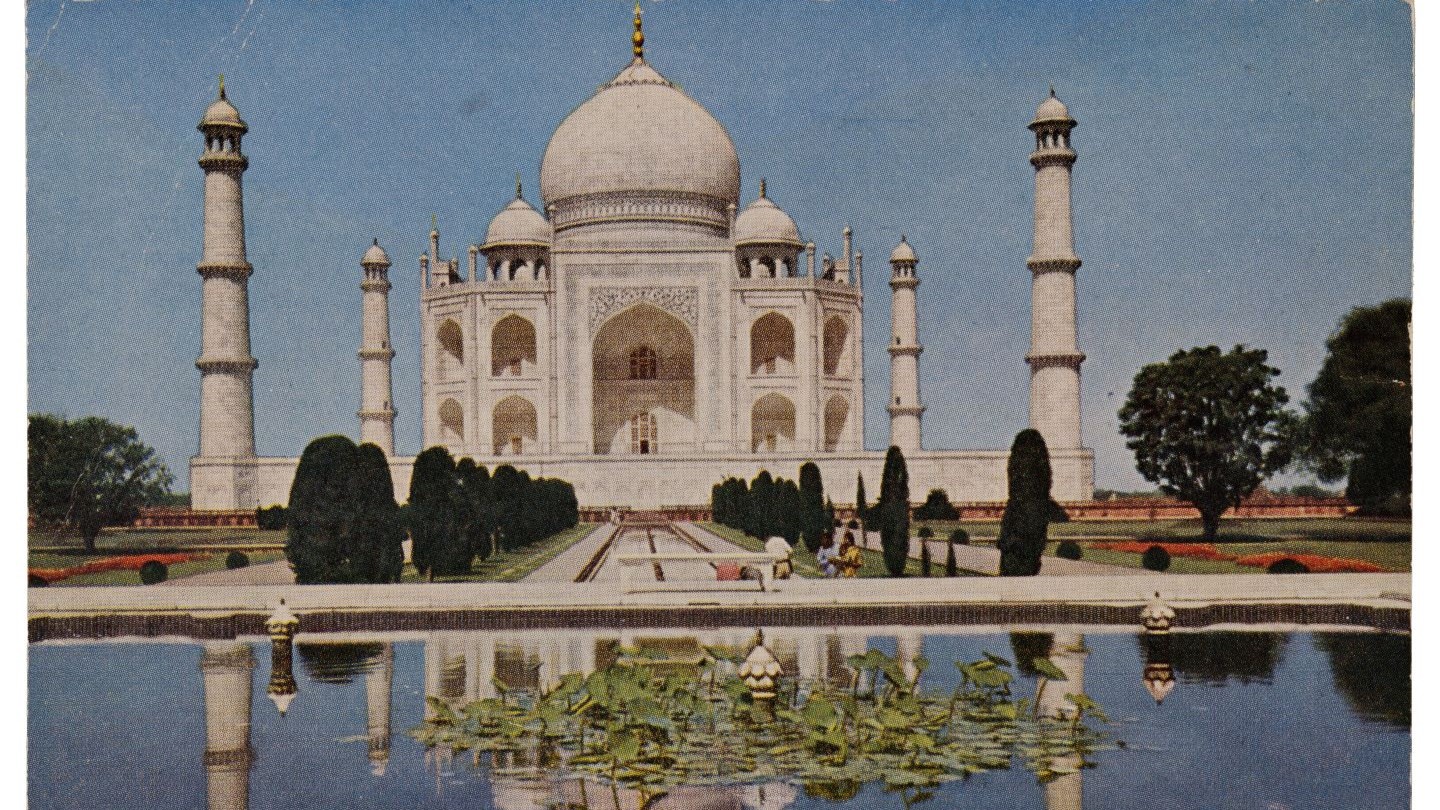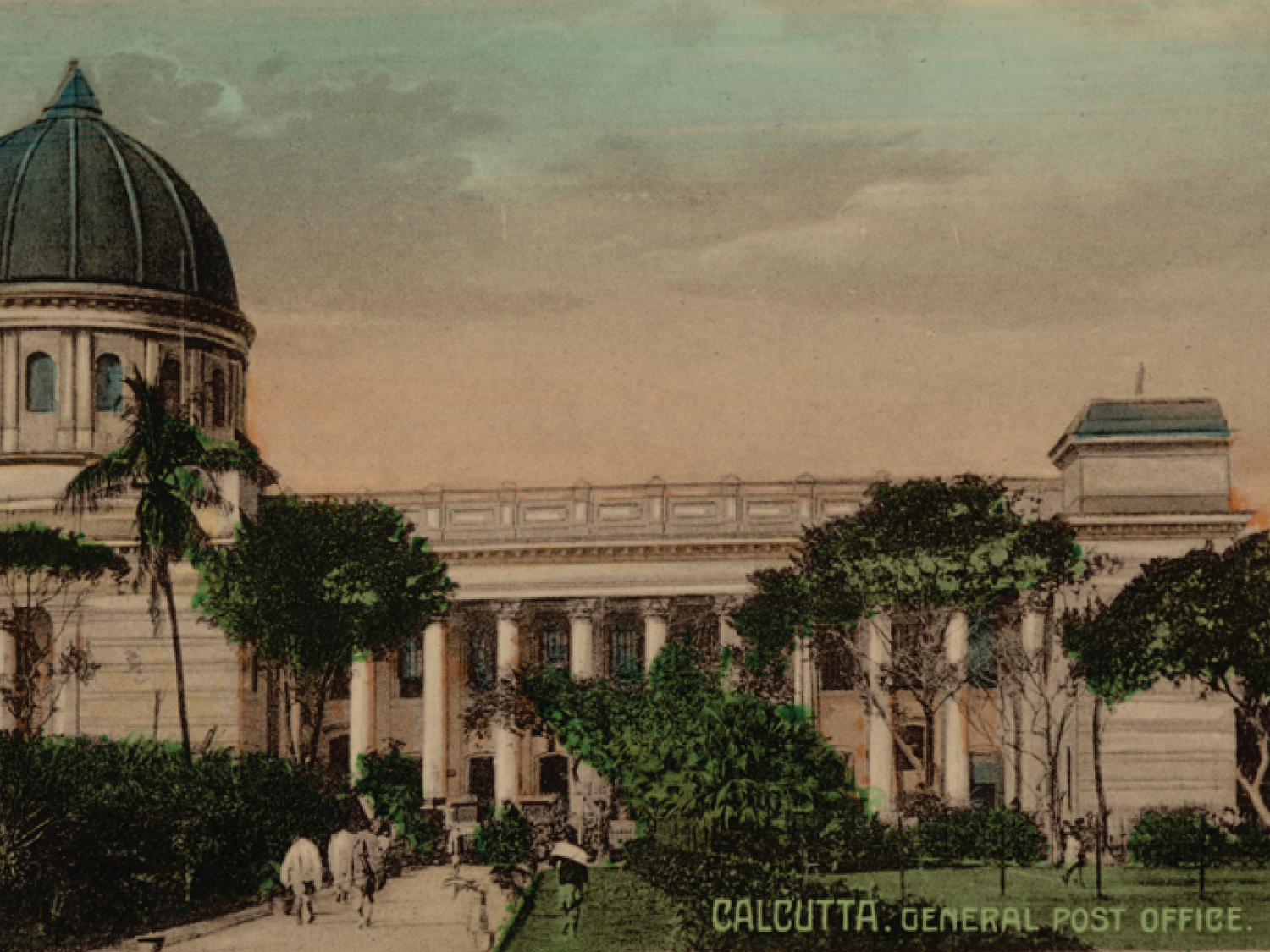Exhibition Opening
Opening Weekend: Hello & Goodbye: Postcards from the Early 20th Century

Taj Mahal, Agra, Unknown, 20th century. Coloured Halftone. POP.32164. From the Collection of Kenneth X and Joyce Robbins.
Our latest exhibition opens this weekend! We have workshops, film screening and other fun activities planned for you throughout the day.
Take your pick from the programming schedule below:
Walkthroughs at MAP
April 6 – 7 | 3:00 pm
First Floor, Infosys Foundation Gallery
This event is free to attend. Open to all ages.
Postcards revolutionised communication in the early 20th century, by revealing people’s ambitions and providing context into the lived experiences of people that were once known. The exhibition Hello & Goodbye: Postcards from the Early 20th Century confronts the colonial gaze through the lens of communication, travel and longing, and encourages audiences to interpret these historical narratives.
On April 6
Join Khushi Bansal and Rucha Vibhute from the MAP team as they take us through the exhibition, closely looking at printing culture, mass-production, the colonial gaze, memory, identity, and nostalgia as themes within the exhibition. Together we probe deeper into how these postcards tell a story about an entire generation of people.
On April 7
In this walkthrough with Meghana Kuppa from the MAP team, we will learn more about the role picture postcards played in circulating knowledge about India – its people, landscapes and culture – within the larger British empire. Delve into insightful penned messages, intriguing visuals, and reconnect with the lasting legacy of postcards.
***
Workshops at MAP
April 6 – 7 | 11:00 am to 12:30 pm
Lower Ground Floor, HDFC Learning Centre
Engagements for families and individuals
On April 6 | What Next? | A workshop exploring the afterlife of postcards.
This event is free to attend. Open to all ages.
Postcards in the 20th century served various purposes beyond messaging, doubling as collectibles and souvenirs!
Join us for a walkthrough of Hello & Goodbye: Postcards from the Early 20th Century, and look closely at the objects displayed with Shubharee Purkayastha from the MAP team. This will be followed by an activity using postcard reprints from the collection, where participants will create a souvenir inspired by this exhibition.
On April 7 | Time Travel with MAP | Reliving old memories through new experiences
This event is free to attend. Open to teams of ONE CHILD and ONE ADULT.
We invite families to explore some fascinating postcards from the MAP collection. Share your cherished and unforgettable travel experiences with the next generation, passing on your love for travel through postcards as you create an illustrated one together – reliving old memories, technologies, and forms of communication.
Shyamli Singbal from the MAP team will walk you through the exhibition Hello & Goodbye: Postcards from the Early 20th Century, following which creativity can take over through the conversations that are born from this.
***
Talks and Screenings
On April 6 | From Postboxes to Archives | Exploring social and personal histories with letters and postcards.
4:30 pm to 5:30 pm IST
First Floor, Mazumdar-Shaw Auditorium
An open dialogue to show and share personal collections of letters, postcards and correspondences. We also invite you to bring along correspondences and anecdotes you’d like to share.
Ishita Shah moderates speakers, Radhika Hegde, Rohini Kejriwal and Srinidhi P in this panel discussion. They discuss correspondence, sharing insights and anecdotes from their own projects, highlighting its significance in communication, culture and history.
This talk has been organised in collaboration with Curating for Culture.
On April 7 | Vasthuhara | In this film about displacement and loss, characters remain connected through letters.
4:30 pm to 7:00 pm IST
First Floor, Mazumdar-Shaw Auditorium
Written and directed by G. Aravindan, Vasthuhara delves into the lives of partition refugees in Calcutta in 1971. This multilingual story shows us how people stay connected, despite turmoil and tragedy, through the letters they write to each other. The screening will be followed by a conversation between Basav Biradar and Ashish Rajadhyaksha.
This screening has been organised as part of the programming around the exhibition Hello & Goodbye: Postcards from the Early 20th Century in collaboration with the Bangalore Film Forum and in association with the Kerala State Chalachitra Academy.
To register for any event of your choice, click here.



